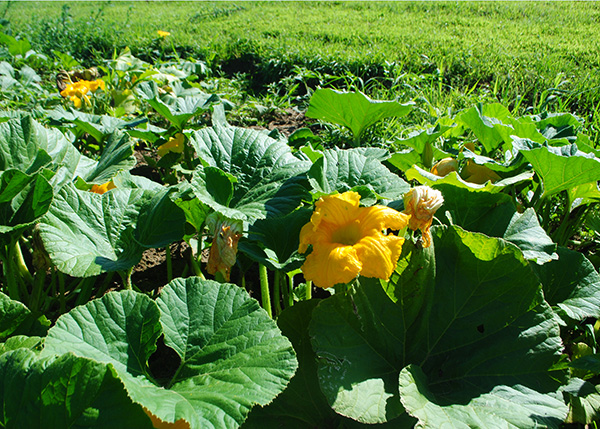 Every gardener faces challenges in their garden at some point. Arguably, the most frustrating issue is when the garden isn’t producing. I recently received this text from a friend, “Garden is weird; it’s tall and full, but not producing.” That is definitely a 9-1-1 call in the world of gardening. To answer the text, I had to gather some additional information. There are several different factors that can slow or stop fruit production.
Every gardener faces challenges in their garden at some point. Arguably, the most frustrating issue is when the garden isn’t producing. I recently received this text from a friend, “Garden is weird; it’s tall and full, but not producing.” That is definitely a 9-1-1 call in the world of gardening. To answer the text, I had to gather some additional information. There are several different factors that can slow or stop fruit production.
- Pollination: Vegetables like tomatoes, peppers, and cucumber first produce a flower. Once the flower is pollinated, the vegetable will start to develop. For growth to begin, the pollen needs to transfer from the male part of the flower to the female part of the flower. Without pollination the seeds and fruit will not develop. The pollen is easily transferred by wind or insects.
- Water: Without adequate water, plants can’t absorb nutrients from the soil nor can it complete photosynthesis. One of the quickest ways to know if your garden needs water is with the knuckle test. Put your finger one inch into the soil (to your first knuckle). If the soil is moist, it has enough water; if it is dry, simply add water.
- Temperature: If temperatures are below 55 degrees or above 90 degrees it will affect the plants ability to produce fruit. Hot summer temperatures means slow production.
- Light: A garden needs 6-8 hours of sun light. Less light means less production. If possible, locate gardens away from buildings and trees.
- Nutrients: A tall green plant without any fruit is the result of too much nitrogen in the soil. It can be deceiving because you think the garden is healthy when actually it’s unbalanced. To offset this imbalance, you can add bone meal or phosphorus to the soil. To keep soil nutrients in balance, it’s important to have the soil tested every year so that you know how to manage soil nutrients in the future.
In response to my friend’s garden 9-1-1 text, we determined two factors were affecting her garden: water and nutrients. Problem solving will always be a part of gardening. I think that is part of its appeal! A brown thumb doesn’t turn green after one season. It’s takes years of experience! Keep at it! I am happy to be gardening with you!




